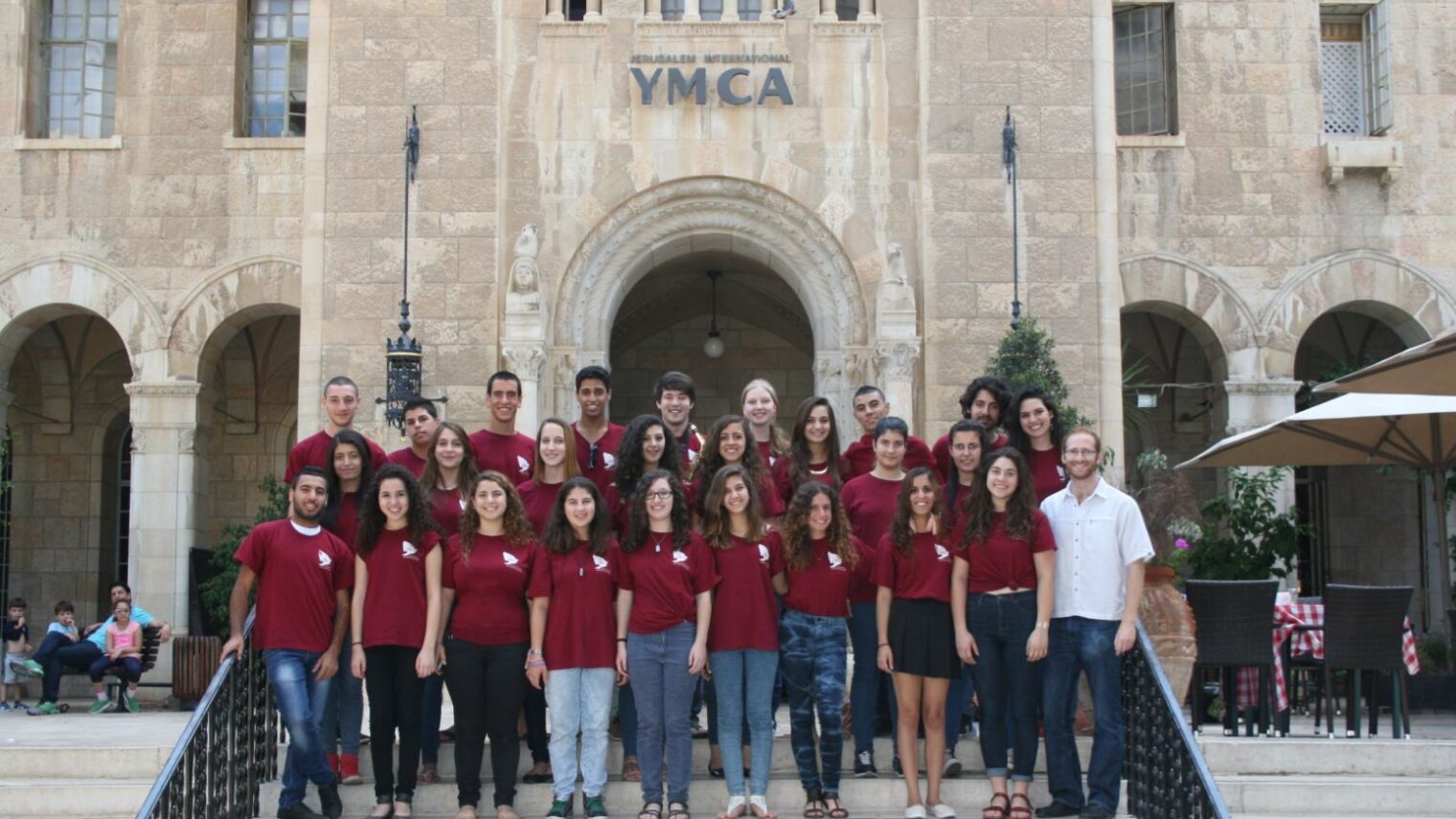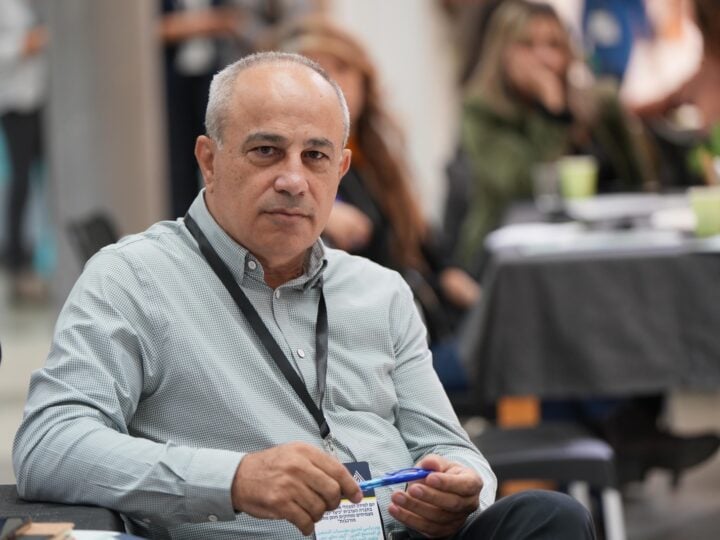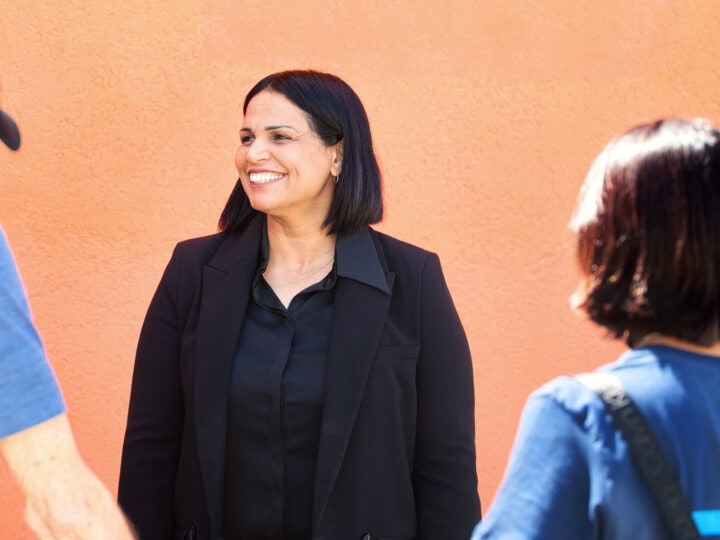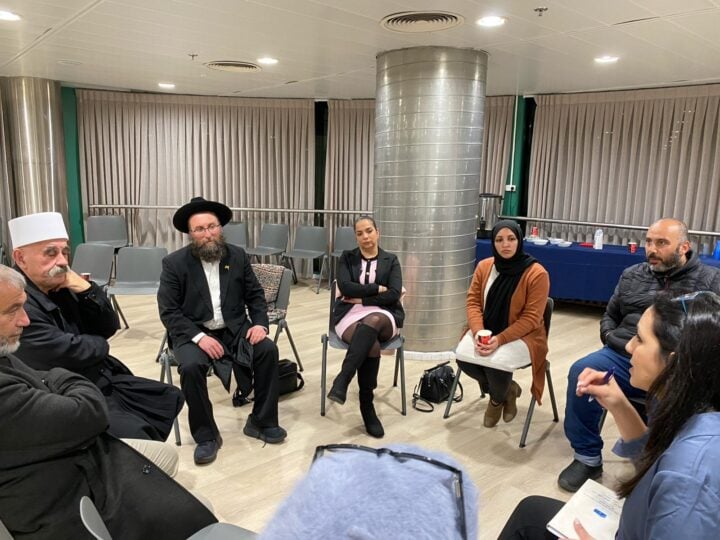One by one, Micah Hendler gives hello hugs to 30 teenagers from across the capital city as they arrive for choir practice at the International YMCA on King David Street.
Jewish, Muslim and Christian, the girls and boys don’t appear to have much in common until Hendler starts the vocal warmup and a unified harmony fills the room.
Established in 2012, the YMCA Jerusalem Youth Chorus sings in English, Hebrew and Arabic, in Israel and abroad. The carefully chosen songs — hip-hop to chant, Middle Eastern to global pop — are weighted with words like “kulanu,” Hebrew for “all of us,” and phrases like “I love you and I need you to survive.”
Every weekly rehearsal concludes with a professionally facilitated, simultaneously translated dialogue that doesn’t aim for perfect harmony but for greater understanding.
“We go beyond simply singing together, delving deeper into one another’s identities, life experiences, communal narratives, religious traditions and national histories through dialogue, all within the safe space of the musical ensemble and the strong personal bonds and community it creates,” says Hendler.
“I live in Israel, I’m an Arab, there’s Jewish people … that’s what I know,” said choir member Samia. “But I never talked to them, I never knew them, I never knew their opinion. After joining this choir it changed my life. It made me know what they think. It made them know what I think.”
‘A Mashup for Change’
Ahead of the April 21 debut of the JYC’s first full-length studio album, “Home,” the chorus released the music video “A Mashup for Change,” a medley with a message about accepting differences: “Some Nights” by Fun, “Stay With Me” by Sam Smith, “Man in the Mirror” by Michael Jackson and “I’ll be There for You” (the theme song from “Friends”).
The album had an April 2 pre-release in Jerusalem and will have a pre-release event on April 20 in the Washington, DC offices of Sony Music. Hendler hopes to schedule an East Coast US tour at the end of the year.
The founding director, just 27 years old, tells ISRAEL21c that he was pleasantly surprised in 2012 to discover many Jerusalemites thirsting for something like this choir.
“The political climate on both sides is about detaching from the other, but if you tap into people’s basic humanity and give them something they want, like the chance to sing, that can overcome a lot of the political cynicism,” says Hendler, who came to Jerusalem fresh out of Yale University. “I expected to have 10 singers six months in, and instead 80 had auditioned. That was kind of overwhelming for me.”
Hendler sang with the Whiffenpoofs and Duke’s Men at Yale, but his exploration of the intersection between music and conflict transformation started at Seeds of Peace International Camp for Coexistence in Maine in 2004. He is a member of the Forbes Under 30 Community and currently heads AMENDS Global Fellows, a network of emerging change-makers in the Middle East-North Africa region.
He says that surveys to measure the impact of the JYC indicate positive changes in the attitudes of members and their friends and families.
Connection to home
Hendler’s goal in founding the JYC was “to create a home for all of our singers and seek to show what Jerusalem could be,” emphasizing inclusivity and equality.
“We do not sing about peace,” he hastens to add. “It’s easy to sing about peace and have no idea what you mean, and a lot of people do. Rather than sing directly about peace in the abstract, we sing about the building blocks that ultimately lead to it: love, community, overcoming loss and connection to home.”
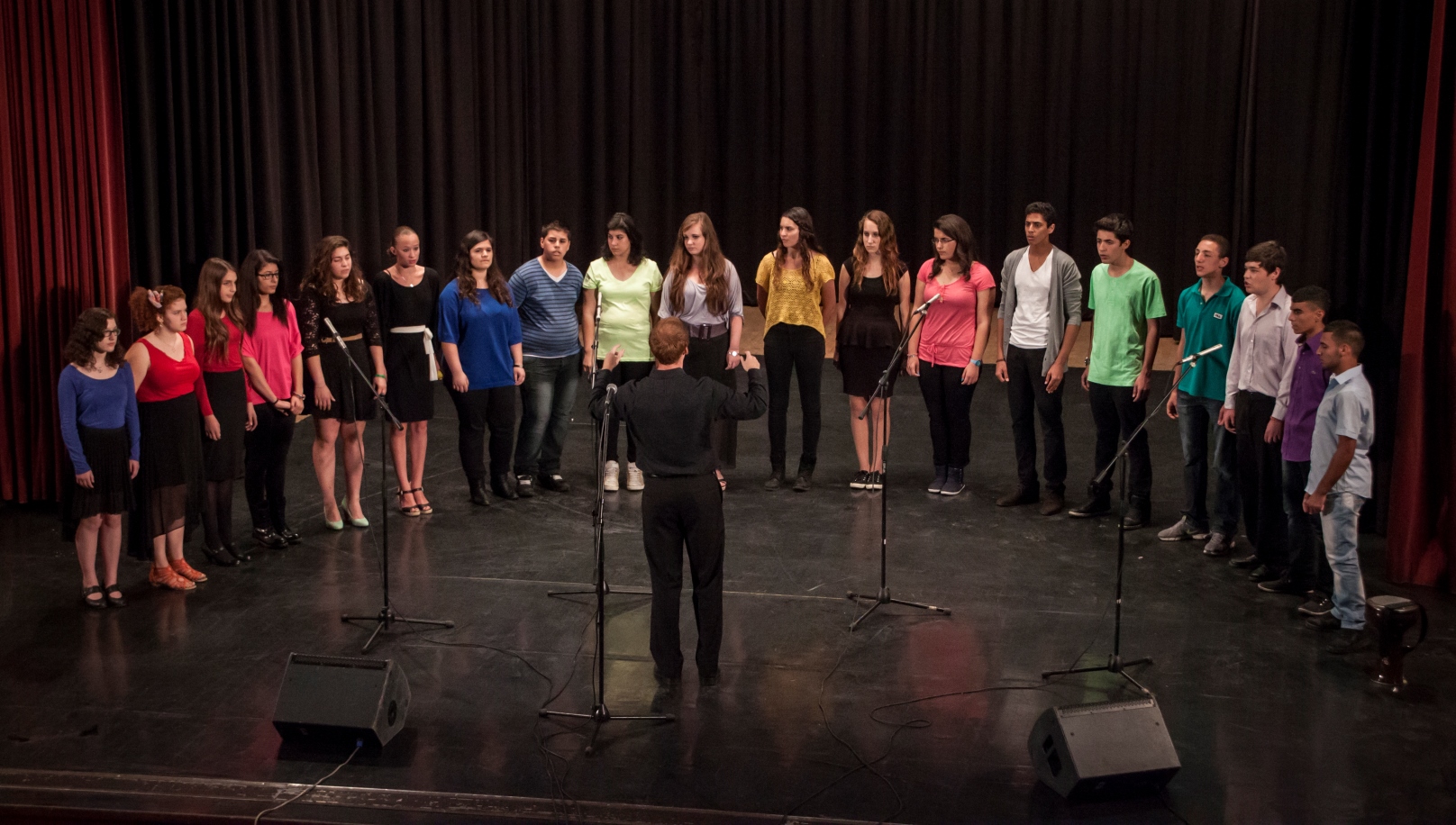
At rehearsals, singers are grouped according to voice. The tenor and bass sections are overwhelmingly Arab, “probably because to be a teenage guy who sings is ‘cooler’ in Arab society than in Jewish society,” Hendler has found. Sopranos and altos are mostly Jewish because few girls from conservative Muslim families are free to participate in activities outside home or school.
Nevertheless, “You get to know the other side … you get to be together, you get to see what it’s like being with kids different than you,” says Avital, a Jewish Israeli chorister.
“The choir is beautiful and we enjoy it because we are Arabs and Jews together at the same time,” adds Ameer, a Palestinian member.
Touring the world
The chorus has recorded and performed with Israeli singers David Broza, Mira Awad and Sam Tsui and with the Yale Whiffenpoofs and the Young People’s Chorus of New York City.
“Almost every year, the chorus goes on tour. The tours are an amazing opportunity to perform on the world stage, explore other cultures, meet new friends and collaborate with new partners,” says Hendler.
“We’ve traveled to Kyoto and Tokyo, London and Oxford, and the East Coast of the United States from Boston to Washington, DC. Audiences are not just enjoying our concerts but are being moved by what we’re doing.”
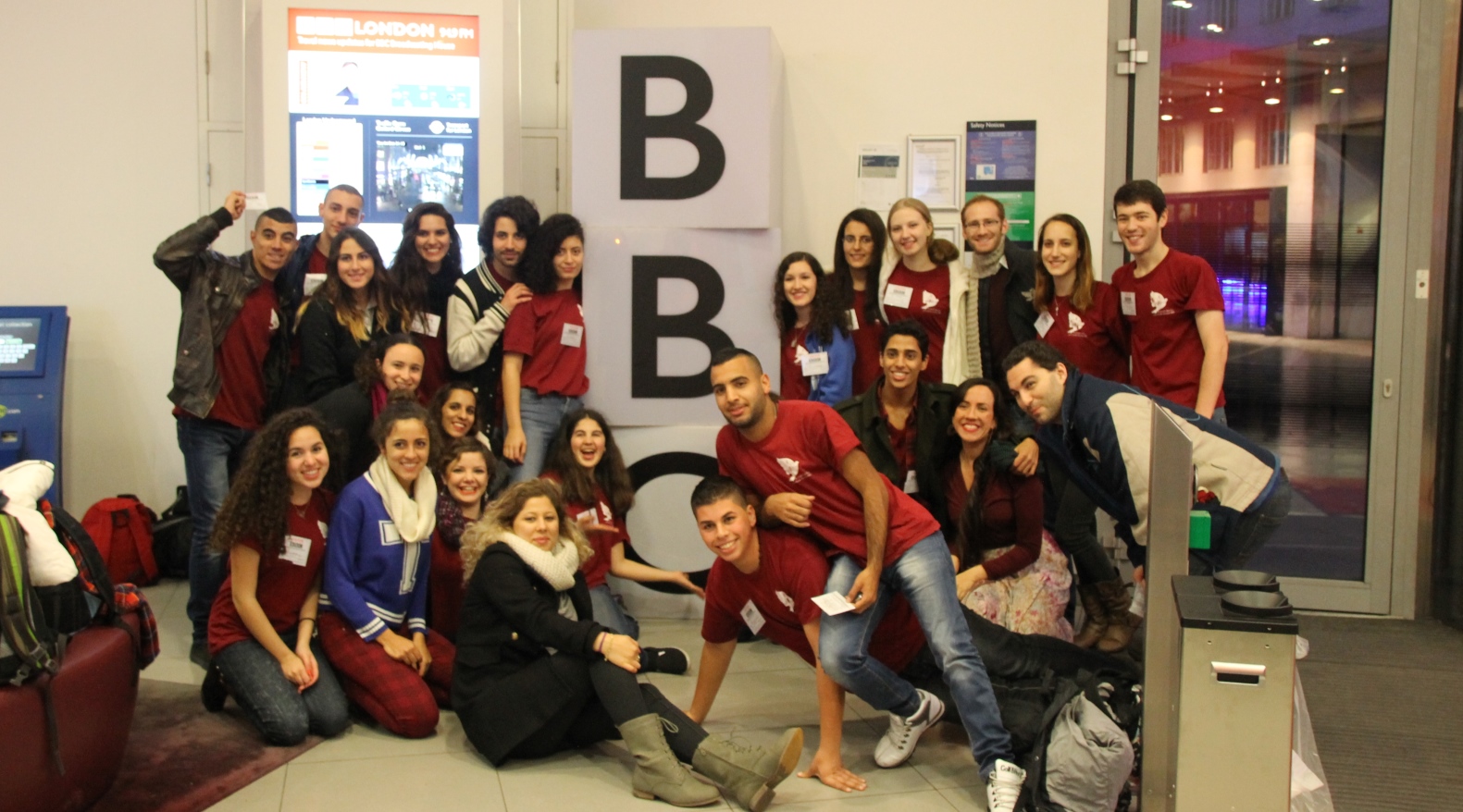
People who’ve seen the concerts often ask how they can be involved or visit the chorus in Jerusalem. “We welcome that. People can connect us to others who can be relevant, they can volunteer with us, support us financially, spread the word to other communities, host us or help us connect with a music festival.”
The chorus is an official program of the YMCA and is supported by the Jerusalem Foundation, individuals and organizations around the world “who believe in the power of song to cross borders,” says Hendler.
For more information, click here.




